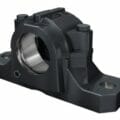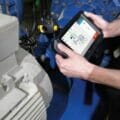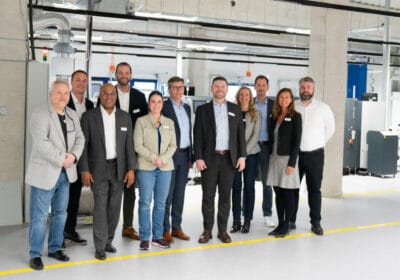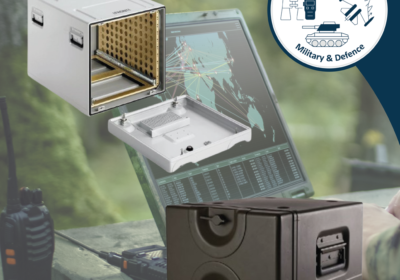- In-house production to be climate neutral by 2030 and supply chain by 2040
- Specific mid-term targets and measures defined in line with the 1.5 degree Celsius target
- Initial objectives of Sustainability Roadmap achieved
The Schaeffler Group will be operating as a climate-neutral company from 2040. This objective covers the entire supply chain and is underpinned by ambitious mid-term sustainability targets. The Schaeffler Group is therefore accelerating the pace of the Sustainability Roadmap it adopted in 2019.
The company’s own production facilities (Scope 1 and 2) will already be climate neutral from 2030, and by 2025 it aims to prevent as much as three-quarters of its production emissions. The emissions from intermediates and raw materials occurring in the supply chain (Scope 3 upstream) will be reduced by 25 percent by 2030. The Schaeffler Group aims to achieve climate neutrality in this area as well by 2040. The base year for all calculations is 2019. To achieve these targets, the company will focus on tangible reduction measures, and only unavoidable emissions will be neutralized by means of carbon offsetting.
Klaus Rosenfeld, Chief Executive Officer of Schaeffler AG, says: “Sustainability plays a key role in implementing our corporate strategy. The decarbonisation of the Schaeffler Group by 2040 is a top priority for us. Through our defined targets and specific measures, we are doing our part to help achieve the objectives of the Paris Climate Agreement. In doing so we are strengthening our position as a preferred technology partner and supplier of sustainable solutions and products, for example in the electric mobility and renewable energy segments.”
Measures for a climate neutral company
The Schaeffler Group is pursuing a clear strategy to achieve its self-imposed targets and operate climate neutrally from 2040. Specific measures for divisions, regions and functions are being defined and implemented across the company, as Schaeffler rigorously pursues the course it embarked on some years ago. Effectively, the carbon intensity is now being included into the company-wide management model across the entire supply chain of the Schaeffler Group, allowing the effect on the climate of individual process steps to be recorded and managed. The integration of the sustainability targets into the compensation structures for top executives is also evidence of the company’s clear commitment to sustainability.
First targets already met
Since 2020, 100 percent of the electricity purchased for all production sites in Germany has come from renewable sources. This also allowed around 260,000 metric tons of CO2 to be avoided last year. By 2024, all Schaeffler sites worldwide will purchase electricity generated from 100 percent renewable sources. Cumulative energy efficiency gains of 100 gigawatt hours will also have been realized by 2024. This is roughly equivalent to the annual power consumption of 28,500 three-person households in Germany. In 2020, more than 100 measures had already resulted in annual savings of more than 27 gigawatt hours.
“One of our objectives is also to have a strong CDP score. The fact that in 2020, after just two years, we were able to improve our rating from a ‘D’ to an ‘A-’, was an enormous incentive for us. Sustainability in all its facets is an integral part of Schaeffler’s DNA. We are constantly reappraising ourselves and are making this process transparent, as also evidenced by our comprehensive sustainability reporting,” says Corinna Schittenhelm, who is responsible for human resources and sustainability in the Schaeffler AG Executive Board. Other objectives, like the continuous improvement of occupational safety by reducing the annual accident rate by 10 percent on average, and a 20 percent decrease in fresh water use by 2030, show that Schaeffler is taking an integrated approach to sustainability.
Partnerships with sub-suppliers and customers
With its new climate targets, the Schaeffler Group is also intensifying its relationships with sub-suppliers in the area of climate neutrality. Involving sub-suppliers will mean that in the future, Schaeffler will obtain raw materials and intermediates that have been produced using more climate-friendly processes. This is a major challenge in energy-intensive segments like steel and aluminum in particular. To this end, various aspects like the availability of green steel and other sustainably produced raw materials, and the optimization of the circular economy, are being developed and promoted within the context of partnerships.
The transformation in the markets that represent mobility and motion is fundamentally important for Schaeffler as a leading global automotive and industrial supplier. For example, in the fields of electric mobility, regenerative energy production or the production and use of hydrogen, Schaeffler and its partners are focusing on sustainable innovations, because the 1.5 degree Celsius target can only be met if all stakeholders work together. This is also why the Schaeffler Group is a signatory to the UN Global Compact and was chosen as one of the “50 Sustainability & Climate Leaders” by the United Nations in April 2021.








